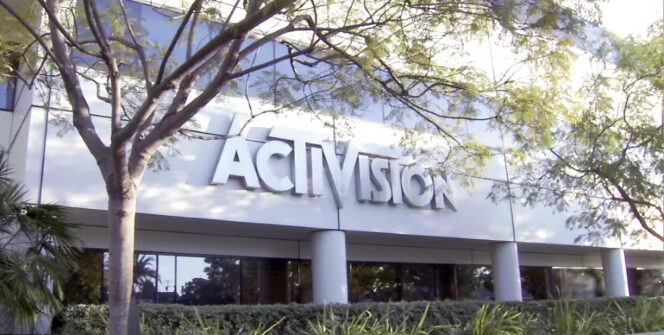The Redmond-based tech company has been hit with another lawsuit as European, and UK market regulators try to assess the $68.7 billion deal.
Bloomberg Law has reported that gamers have filed an antitrust lawsuit against Microsoft (documented here) because they say they would have no competition if they owned Activision Blizzard King. Ten individuals who play Activision Blizzard games on multiple platforms filed the case in San Francisco. Only one of them named PlayStation as the platform they use.
“Microsoft already controls one of the industry’s most popular and largest video game ecosystems. The proposed acquisition would give Microsoft an unrivaled position in the gaming industry, leaving it with the greatest number of must-have games and iconic franchises. The proposed acquisition of Activision Blizzard by Microsoft poses a substantial threat to the Plaintiffs and the public in that the proposed acquisition may substantially lessen competition in each relevant product market and may cause loss to the Plaintiffs. The public at large, in the form of higher prices, less innovation, less creativity, less consumer choice, and decreased output. Other potential anticompetitive effects, which deprive the Plaintiffs, and the public at large, of the valuable benefits of competition,” the suit states.
All Microsoft acquisitions and mergers since 2014 are listed, ending with ZeniMax Media in 2020 (Bethesda is a subsidiary). Still, a minor mistake was made with Rare, a studio that the Redmond giant acquired in 2022, according to the document. It is incorrect, as Rare has been part of Xbox Game Studios since 2002. The lawsuit also says that Microsoft would reduce the choices available to its employees, which could be a problem because Activision Blizzard is the subject of several lawsuits and proceedings. And a Microsoft spokesperson had the usual reaction (expanding competition, giving more options to gamers and developers as the tech company wants to bring more games to more people).
Meanwhile, the CMA (the UK’s Competition and Markets Authority) has published a study compiled from more than 2,600 emails received from the community over two weeks in October. Of the 2,600, around 500 were disregarded because they were “abusive, had no other content, was blank, incomprehensible or not in English, or were from non-UK consumers.” Still, the other 2,100 met the CMA’s criteria, and the regulator said around three-quarters of commenters would support the deal. The CMA’s final report is due no later than March 1.
Some examples of the reasons given by supporters: Sony and Nintendo are stronger than Microsoft in console gaming, and the merger would help Microsoft compete. Microsoft would not put Activision Blizzard content exclusively on Xbox because it would lose significant potential revenue from rival platforms; the acquisition is simply a reaction to Sony’s business model, which historically has been to provide exclusive content or early access to popular cross-platform game franchises such as Final Fantasy and Silent Hill. Microsoft could provide better leadership to Activision Blizzard and an incentive to invest more in games other than Call of Duty. Opponents, on the other hand, argue that the merger would lead to consolidation and set a damaging precedent in the games industry by acquiring large publishers rather than encouraging organic growth; Microsoft would make Call of Duty exclusively Xbox-exclusive, as it did with Bethesda’s games after acquiring ZeniMax Media; Microsoft could capture the market for multiplayer subscriptions as it can afford to add games to Game Pass at a loss, and the company is already dominant in cloud-based games so that the merger could have an impact on the future of new entrants in this area.
Reuters reported that the European Commission has sent out a 91-page questionnaire on the deal, and there is a good chance that many developers and publishers could receive the package. The antitrust organization asks a few questions, such as: Will the price of the publisher’s games increase on competing platforms? Will the games be released later on other platforms? Will there be Xbox-exclusive content and features? In a statement to Reuters, Microsoft criticized Sony again (calling them the market leader worried about Call of Duty; the same game would be released on the same day on both console makers’ product lines and wanting to give gamers more access to games, not less).
That’s where we are now.
Source: WCCFTech, Gamesindustry, Gamesindustry


![[TGA 2025] Star Wars: Galactic Racer Focuses on High-Stakes Podrace Runs [VIDEO]](https://thegeek.games/wp-content/uploads/2025/12/theGeek-Star-Wars-Galactic-Racer-302x180.jpg)









![[TGA 2025] Star Wars: Galactic Racer Focuses on High-Stakes Podrace Runs [VIDEO]](https://thegeek.games/wp-content/uploads/2025/12/theGeek-Star-Wars-Galactic-Racer-300x365.jpg)



Leave a Reply